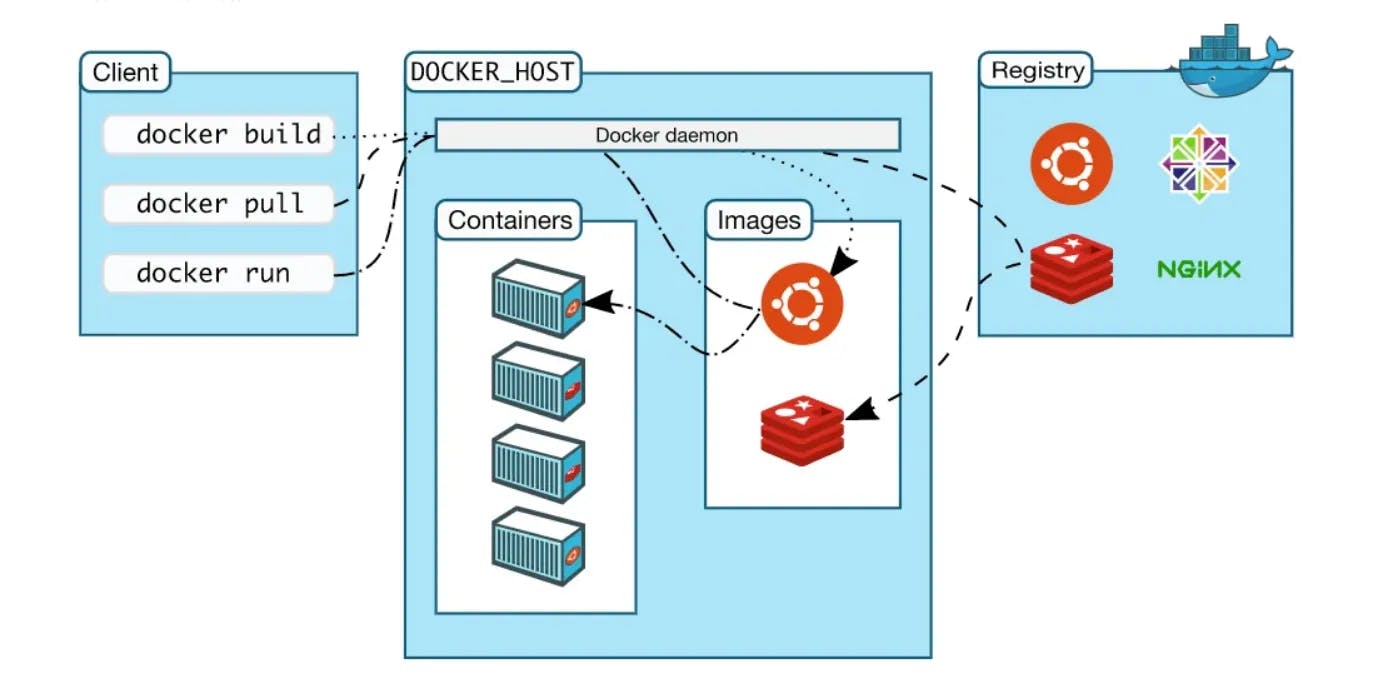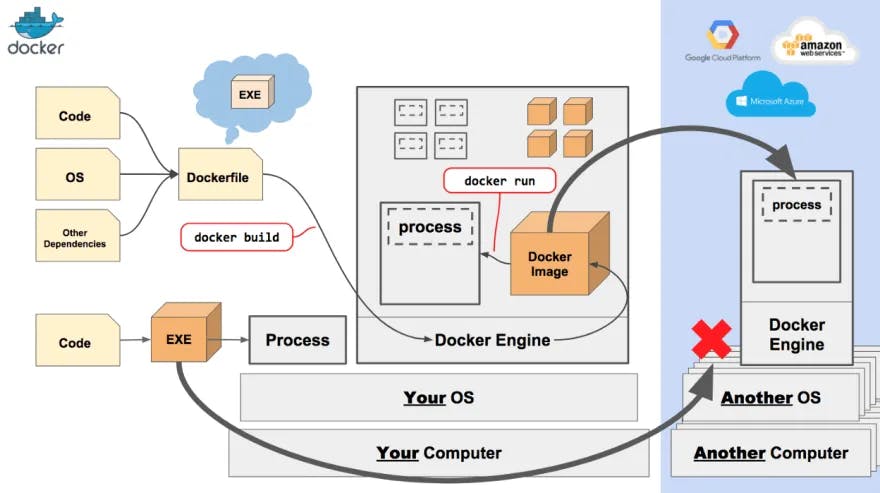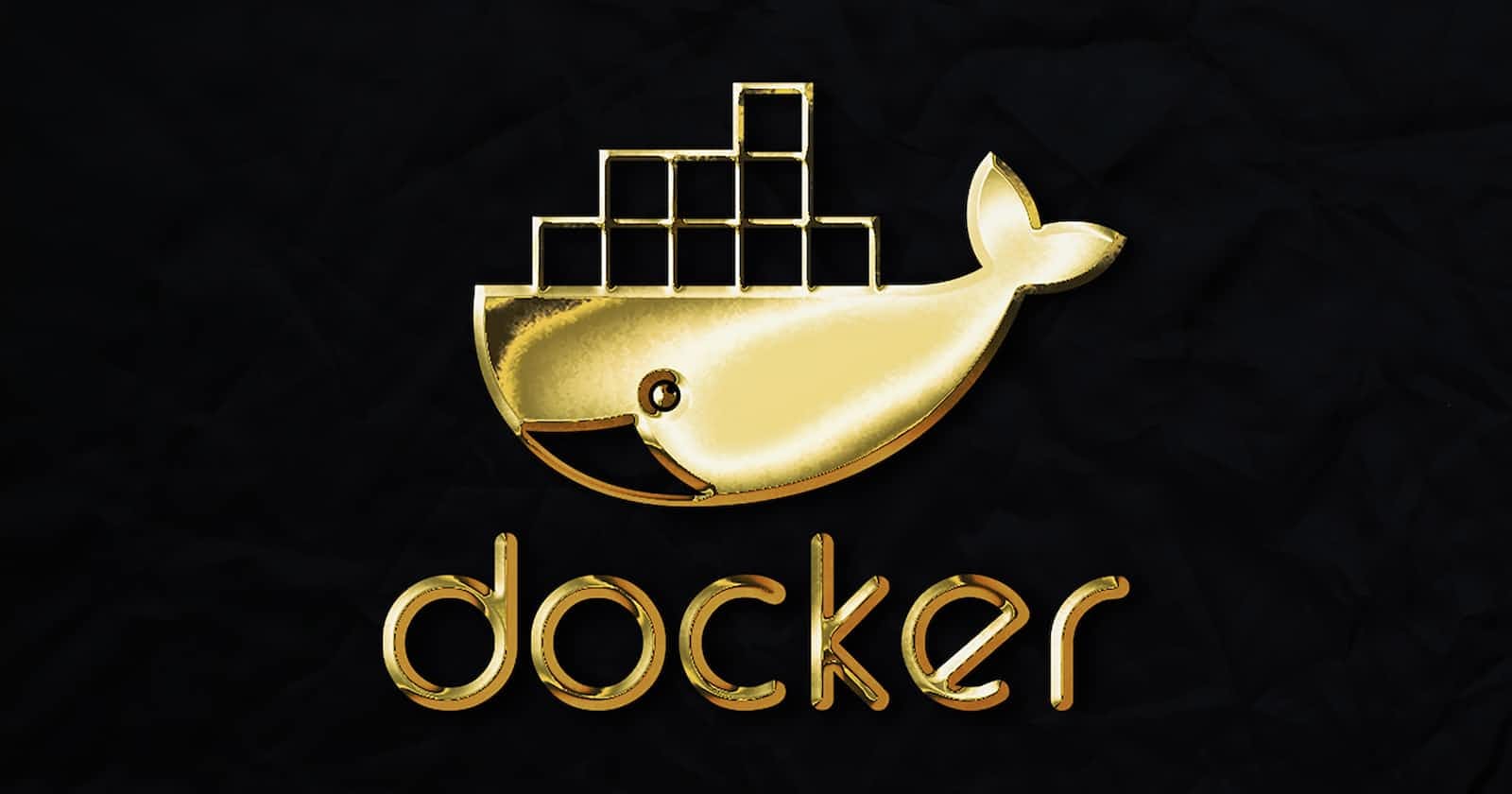Using Docker ensures that your application runs on any machine, not just the one you're using.

Hey everyone! Docker has emerged as one of the top containerization platforms in recent years, and its popularity has been driven in large part by the rise of Microservices and Cloud Computing. As more and more companies adopt containerization and DevOps practices, it has become essential for developers to have a solid grasp of Docker and its workings. That's why I highly recommend that every developer should learn about Docker.
In the past, we've seen how Microservices work and explored various Microservices design patterns such as Event Sourcing, CQRS, SAGA, Database Per Microservices, API Gateway and Circuit-Breaker. In this article, we'll discuss the reasons why developers should learn Docker and the benefits it provides for application development, testing, and deployment.
Whether you're an experienced developer or just starting out, learning Docker can give you a valuable set of skills that will keep you competitive in the fast-paced world of technology.
What exactly is Docker and what issue does it address?
Docker is a platform that provides an open-source solution for developers to containerize, deploy, and execute applications. Containers are self-sufficient, lightweight environments that come with all the necessary dependencies and libraries needed to run the application, making them portable and easy to manage.
By abstracting the underlying infrastructure, Docker streamlines the application development and deployment process, freeing up developers to concentrate on writing code.
Docker solves a major issue in traditional application development, which is managing software dependencies across different machines and environments. This can cause compatibility problems that make it challenging to reliably deploy and run applications.
Docker simplifies this process by allowing developers to package applications and their dependencies into containers, which can be deployed on any machine with Docker installed. This eliminates compatibility concerns and streamlines the process of moving applications between different environments, including development, testing, and production.
To better understand how Docker works, check out this helpful diagram explaining key components such as Docker File, Docker Image, Docker Engine, and Docker container.

Here are ten reasons why developers should consider learning Docker in 2023. While there may be other reasons, these are the top ones to consider:
Portability: Docker makes it easy to move applications between different environments, reducing compatibility issues and allowing for more streamlined deployment.
Scalability: Docker enables developers to quickly and easily scale their applications horizontally or vertically as needed, without requiring significant changes to the underlying infrastructure.
Consistent containerization: Docker allows developers to create containers that can run consistently across different environments, enabling easy deployment of applications in a containerized environment. This means that Docker images can be shared with other team members without them worrying about dependencies.
Speed: Docker can significantly speed up the development process by enabling developers to quickly create and deploy containers, without having to worry about setting up complex infrastructure.
Efficiency: Docker allows developers to work with smaller and more focused containers, reducing the overhead associated with traditional virtual machines.
Versatility: Docker is compatible with various programming languages, frameworks, and tools, making it an adaptable solution for developers in various sectors.
Thriving Community: Docker has an active and extensive community of developers, providing a wealth of resources, assistance, and the most recent advancements.
Enhanced Collaboration: Docker streamlines collaboration between developers by offering a standardized environment that can be easily shared and duplicated.
Robust Security: Docker delivers a wide range of security features that guarantee the safety and reliability of applications running within containers.
Career Advancement: Docker abilities are in high demand as more organizations adopt containerization and microservices architectures, making it a valuable competency to possess in the current job market.
If you're looking to learn Docker in 2023, there are numerous resources that can assist you in getting started. Follow these steps to begin your journey:
Start with the Docker documentation: The Docker documentation is an excellent resource to begin with since it offers a comprehensive guide on how to install, utilize, and manage Docker containers. Head over to the Docker Docs to begin.
[ LINK ]
Enroll in online courses: Various platforms, such as Pluralsight, Coursera, and Udemy, offer Docker courses that cater to beginners and advanced learners.
Gain practical experience: The most effective way to learn Docker is through practice. Experiment with creating your own Docker images, running containers, and deploying applications using Docker. Contributing to open-source Docker projects can also help you gain valuable experience.
Participate in online communities: Docker has a large and active community of developers who are always willing to help and share their knowledge. By participating in online communities like Docker Community Forums, Docker Slack Channel, and Docker Meetups, you can learn from experienced developers and gain insights into the latest trends and best practices in the Docker ecosystem.
Attend conferences and events: Attending Docker conferences and events is a great way to stay up to date with the latest developments in the Docker world. DockerCon is one of the most popular Docker conferences held annually.
To sum up, Docker has transformed the way software is created, distributed, and controlled. To remain competitive in the field and increase output, learning Docker is critical for developers.
Through Docker, developers can produce portable and expandable applications, hasten the development process, and decrease the probability of environment conflicts.
Furthermore, Docker boasts a vibrant community and a wealth of resources that can assist developers in getting started and continuously improving their skills.
By dedicating time to learn Docker, developers can upgrade their abilities, expand their employment prospects, and improve their effectiveness in delivering exceptional software.
Wishing you the best of luck in your Docker journey.

